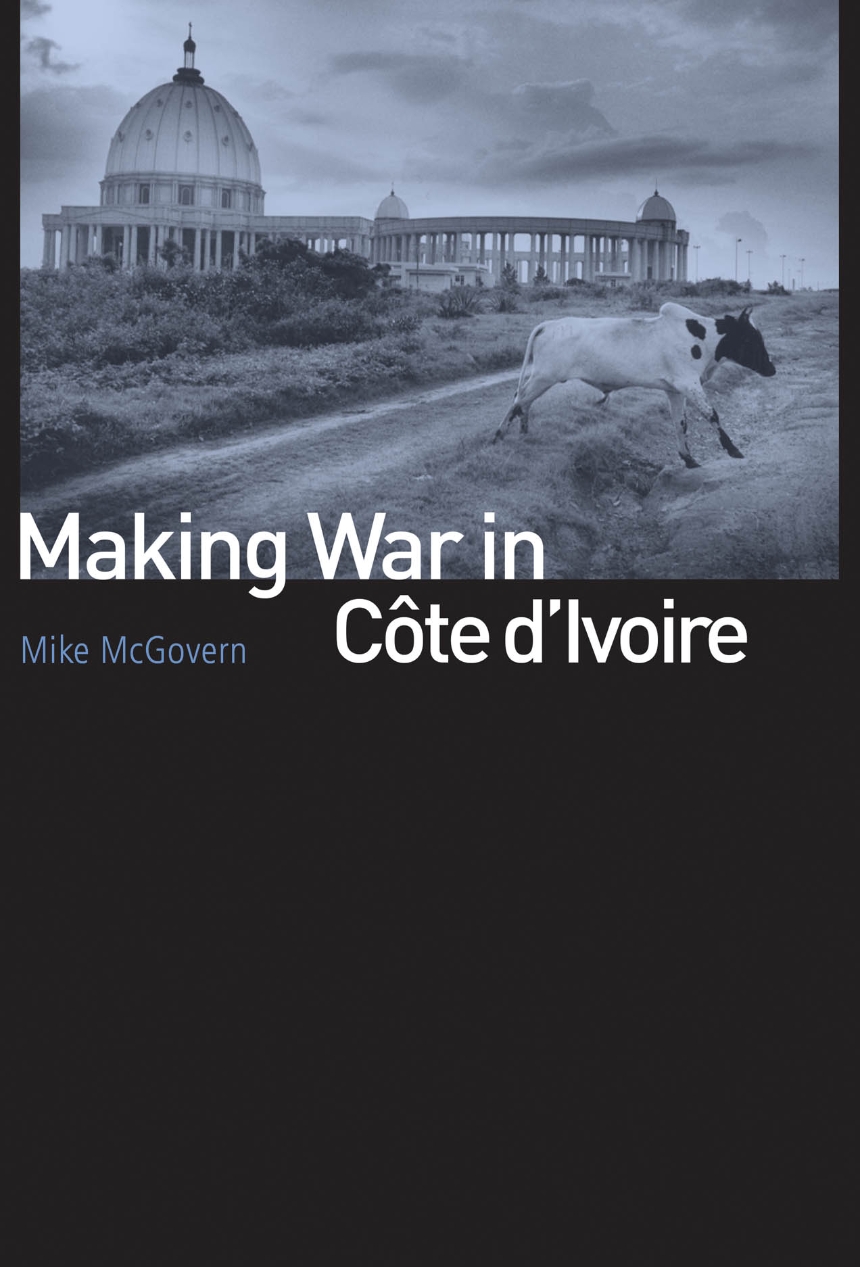Making War in Côte d’Ivoire
After a brief period of active combat in 2002, the conflict in Côte d’Ivoire settled into a pattern of neither war nor peace until the 2010 elections led to a new phase of direct conflict. During these taut years, short bursts of intense violence alternated with long periods of standoff. When things were peaceful, the Ivorian political elite and the press produced inflammatory rhetoric while soldiers and militias used the state of emergency as an excuse to shake down civilians at roadblocks. What kept this perpetually tense, dismal, and destructive situation simmering? In this groundbreaking book, Mike McGovern suggests the answer lies in understanding war as a process, not a series of events, and that rather than focusing on the role of political institutions, we should be paying attention to the flawed and unpredictable people within them.
McGovern argues that only deep knowledge of a region—its history, languages, literature, and popular culture—can yield meaningful insights into political decision making. Putting this theory into action, he examines an array of issues from the micro to the macro, including land tenure disputes, youth boredom, organized crime, and the international cocoa trade. Drawn from McGovern’s academic research and experience working for a conflict resolution think tank and the political access that position gave him, Making War in Côte D’Ivoire will be the definitive work on the Ivorian conflict and an innovative example of how anthropology can address the complexities of politics.
240 pages | 12 halftones | 5 1/2 x 8 1/2 | © 2011
Anthropology: Cultural and Social Anthropology
History: African History, Military History
Reviews
Table of Contents
Glossary of Acronyms
Preface and Acknowledgments
1. Introduction: Socialists and Skinheads
Côte d’Ivoire and the Politics of Identity
A Chronology of the Crisis
Plan of the Book
2. Pillage and Principle: Making Distinctions in a Frontier Zone
Ecology and Economy
Personhood
Warfare
Conclusion
3. The Politics of Ressentiment
The Rights of the Autochthones and Imposition of the State in the Cocoa-producing West
Planters, but Not Mediocre Planters
Autochthones’ Prerogatives and the Fantasy of ‘Turning the Clock Back to Zero’
‘On Peut Instrumentaliser Une Réalité’: The Development of an Ivorian Politics of Ressentiment
Violence as Discourse, Violence as Practice
FESCI and Its Alumni
Free Money: The Transition from Zouglou to Coupé Décalé
‘This is Play’
‘La Deuxiéme Guerre D’indépendance’ and the Rhetoric of Revolution
‘Is this Play?’ The Media and the Events of November 2004
Does it Matter if this is Play?
5. Following the Money: The Cocoa-coffee Filière
Intergenerational Tensions
The Filière Restructured and Ready to do Business
From ‘L’or Brun’ to ‘L’or Noir’: The Reintroduction of Oil Production in the Ivorian Political Economy
6. Neither War Nor Peace: The Sociology of a State of Emergency
Case Study: The Third Assistant to the Mayor of Guiglo
Checkpoint Ethnography: Economic Gain and the Threat of Violence
Alignment
Manchester in Guiglo?
7. Conclusion
History and Agency
When Does War Fail?
Afterword
Bibliography
Index
